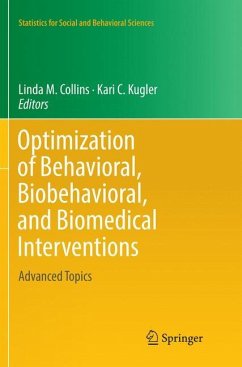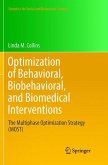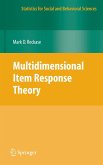Behavioral, biobehavioral, and biomedical interventions are programs with the objective of improving and maintaining human health and well-being, broadly defined, in individuals, families, schools, organizations, or communities. These interventions may be aimed at, for example, preventing or treating disease, promoting physical and mental health, preventing violence, or improving academic achievement.
This book provides additional information on a principled empirical framework for developing interventions that are more effective, efficient, economical, and scalable. This framework is introduced in the monograph, "Optimization of Behavioral, Biobehavioral, and Biomedical Interventions: The Multiphase Optimization Strategy (MOST)" by Linda M. Collins (Springer, 2018). The present book is focused on advanced topics related to MOST. The chapters, all written by experts, are devoted to topics ranging from experimental design and data analysis to development of a conceptual model and implementation of a complex experiment in the field. Intervention scientists who are preparing to apply MOST will find this book an important reference and guide for their research. Fields to which this work pertains include public health (medicine, nursing, health economics, implementation sciences), behavioral sciences (psychology, criminal justice), statistics, and education.
This book provides additional information on a principled empirical framework for developing interventions that are more effective, efficient, economical, and scalable. This framework is introduced in the monograph, "Optimization of Behavioral, Biobehavioral, and Biomedical Interventions: The Multiphase Optimization Strategy (MOST)" by Linda M. Collins (Springer, 2018). The present book is focused on advanced topics related to MOST. The chapters, all written by experts, are devoted to topics ranging from experimental design and data analysis to development of a conceptual model and implementation of a complex experiment in the field. Intervention scientists who are preparing to apply MOST will find this book an important reference and guide for their research. Fields to which this work pertains include public health (medicine, nursing, health economics, implementation sciences), behavioral sciences (psychology, criminal justice), statistics, and education.








